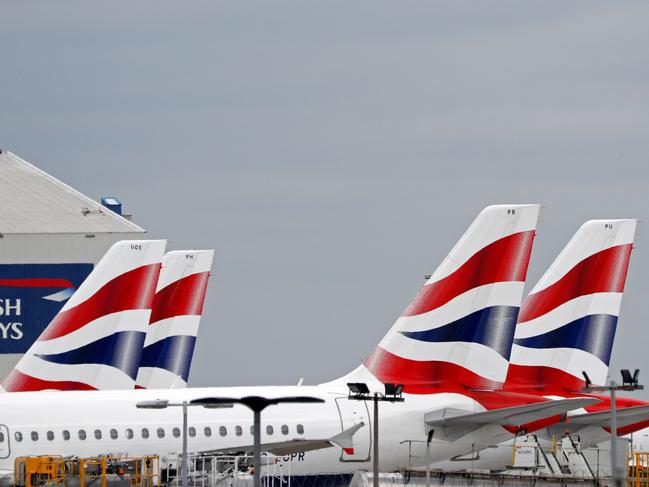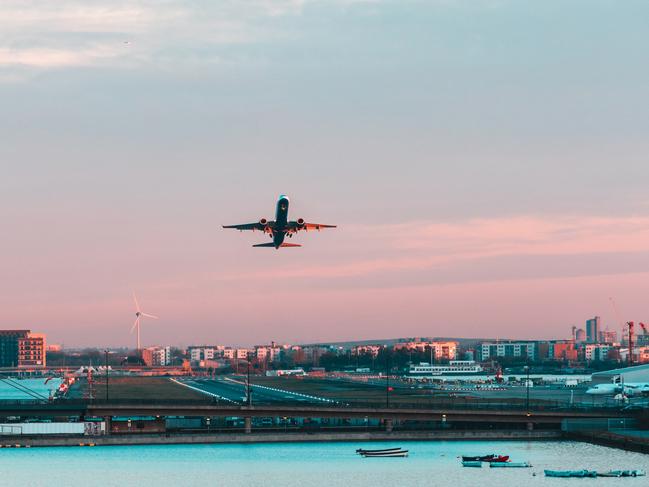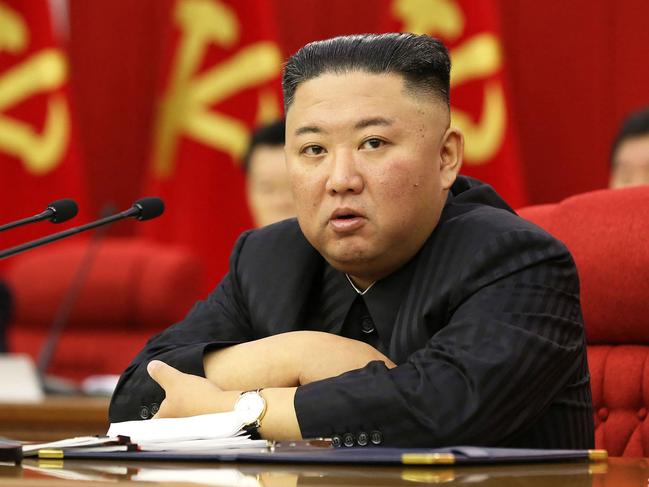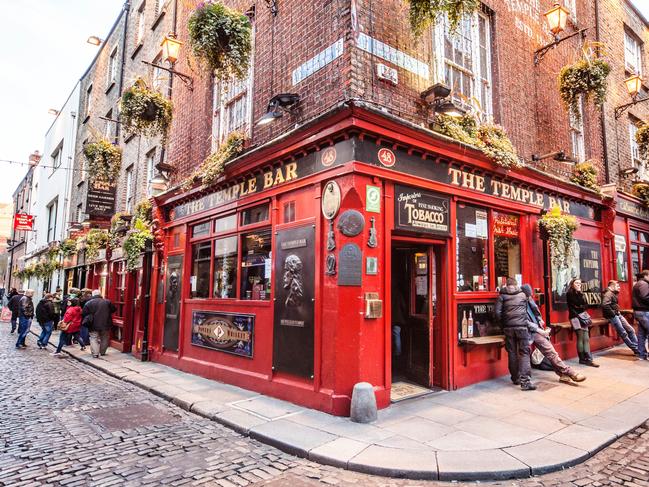Coronavirus world: ‘We’ve entered a very dangerous period’ of pandemic, WHO warns
A stark warning has been issued about a new stage of the Covid-19 pandemic, with the World Health Organisation saying “no country is out of the woods yet”.
Coronavirus
Don't miss out on the headlines from Coronavirus. Followed categories will be added to My News.
The world is in a “very dangerous period” of the pandemic and “no country is out of the woods yet”, the World Health Organisation has warned.
In a briefing on Friday, WHO director-general Dr Tedros Adhanom Ghebreyesus said that the highly contagious Delta variant has been detected in at least 98 countries and is “spreading quickly”.
Delta, first found in India, is continuing to evolve and mutate, and quickly becoming the predominant strain of coronavirus in many countries.
“I have already urged leaders across the world to ensure that by this time next year, 70 per cent of all people in every country are vaccinated,” Dr Ghebreyesus said, adding that would effectively end the acute phase of the pandemic.
He noted that three billion doses of Covid-19 vaccines have so far been distributed and, “it’s within the collective power of a few countries to step up and ensure that vaccines are shared”.
"Compounded by more transmissible variants, like Delta, which is quickly becoming the dominant strain in many countries, we are in a very dangerous period of this #COVID19 pandemic."-@DrTedros
— World Health Organization (WHO) (@WHO) July 2, 2021
Meanwhile the WHO is advising the International Olympic Committee in the run-up to the Games in Tokyo and has urged caution in order to track the spread of the coronavirus, a senior WHO official said on Friday.
“The IOC and others have outlined their plans in taking their approach for the Olympics, and we have been engaging with them and advising them on the best use of those plans,” the WHO’s technical lead on COVID-19, Maria van Kerkhove, told a news conference.
She said the WHO was learning from the Euro 2020 soccer tournament, adding: “If the virus is present and precautions are not in place the virus will spread.”
VACCINATED BRITS SET FOR QUARANTINE-FREE TRAVEL
Fully-vaccinated Britons would be able to travel to anywhere in Europe without having to quarantine on return in just a few weeks under a new UK government plan.
British ministers aim to introduce quarantine-free travel for those who have received both doses of their Covid-19 vaccine by July 26, The Times reports.
UK residents with access to the NHS would first benefit from the arrangement, but it’s understood a deal to extend it to all citizens of the European Union is closed to being signed.
“The big focus for us is Europe now,” a government source told The Times.
“All European ambassadors have been told to go lobby.”
Under a mutual recognition arrangement, all EU countries would recognise the NHS app as a vaccine certificate, while the UK would recognise the EU’s digital green card.
However, it has not yet been decided at what point verification of vaccine certificates will take place.

COVID FUELS HUMAN TRAFFICKING ‘CRISIS’
The Covid-19 pandemic has created an “ideal environment” for human trafficking to thrive as governments divert resources to the health crisis and traffickers take advantage of vulnerable people, the US government says.
The State Department’s “2021 Trafficking in Persons Report” also downgraded several countries and upgraded others for their efforts to combat the scourge of human trafficking.
“Covid-19 generated conditions that increased the number of people who experienced vulnerabilities to human trafficking and interrupted existing and planned anti-trafficking interventions,” the annual report said.
“Governments across the world diverted resources toward the pandemic, often at the expense of anti-trafficking efforts.
“At the same time, human traffickers quickly adapted to capitalise on the vulnerabilities exposed and exacerbated by the pandemic,” it added.
Kari Johnstone, acting director of the Office to Monitor and Combat Trafficking in Persons, said this confluence of factors “resulted in an ideal environment for human trafficking to flourish and evolve.” For example, the report said, “in India and Nepal, young girls from poor and rural areas were often expected to leave school to help support their families during the economic hardship.
“Some were forced into marriage in exchange for money, while others were forced to work to supplement lost income,” it said.
In some countries, landlords forced their tenants, usually women, to have sex with them when they could not pay rent while gangs in some nations preyed on people in camps for displaced persons.
The report ranks countries around the world based on their compliance with the Trafficking Victims Protection Act (TVPA) of 2000.
Two nations – Guinea-Bissau and Malaysia – were added to the Tier 3 list of worst offenders, a list that already included Afghanistan, Algeria, Myanmar, China, Comoros, Cuba, Eritrea, Iran, Nicaragua, North Korea, Russia, South Sudan, Syria, Turkmenistan and Venezuela.
DELTA VARIANT CASTS SHADOW OVER EU COVID TRAVEL PASS
An EU-wide Covid certificate for easier travel came into force on Thursday, just in time for Europe’s busy summer vacation period – but the highly infectious Delta variant is already threatening to curtail its use.
The EU document – essentially a QR code available on smartphones or on paper – shows whether the bearer is vaccinated with one of the EU’s approved jabs (from BioNTech/Pfizer, AstraZeneca, Moderna or Johnson & Johnson), or whether they have recovered from an infection or recently tested negative.
Under EU law, the certificate is meant to do away with the need for quarantines or further testing when travelling between the EU’s 27 countries or four associated European nations (Iceland, Norway, Switzerland and Liechtenstein).
All EU member states were connected to the digital certificate system on Thursday except Ireland, which was hit by a cyber-attack targeting its health service in May and plans to have it operational on July 19.
But a surge in the Delta variant, first detected in India and now quickly gaining ground elsewhere, could trigger an “emergency brake” provision suspending the certificate’s acceptance.

Already Germany has a ban on incoming travellers from Portugal, where the Delta variant has become dominant. Only its own citizens or residents are allowed in from Portugal, and they must quarantine for two weeks upon arrival.
Berlin’s decision has raised Brussels’ ire, with EU Justice Commissioner Didier Reynders saying on Wednesday that “we should avoid travel bans” within the EU and stressing that Germany should have consulted with its partners first.
It comes as airlines grouped together in an umbrella lobby group, A4E, have expressed worries that an “inconsistent approach” among EU countries in vetting the EU Covid certificate could create lengthy lines in airports with the potential to “create new health hazards”.
They called for the certificates to be checked online before travellers even arrived at the airport.
There were scenes of problems at Brussels’ airport early Thursday as the first day of school summer vacation in Belgium, an airport strike in neighbouring France, and added Covid checks collided.
“Everything is blocked,” one employee said at a Brussels Airlines check-in desk, as a massive line of passengers was directed towards a waiting tent where social distancing was not observed.
“We will miss our flight,” one couple with two children complained. An employee responded: “That is Covid, that is the procedure. If you miss your flight, we get you another one.” Overall, EU governments are weighing the public desire for a much-needed summer break against a race between vaccination and the Delta variant.
AFP statistics collating official health data from across the EU show that 50.4 per cent of the bloc’s population has now received at least one vaccine dose, compared with 66 per cent in Britain.
So far, one person in three in the EU is considered completely vaccinated.
KIM WARNS OF ‘GRAVE’ COVID CRISIS IN NKOREA
Kim Jong-un has accused several senior officials of causing a “crucial” coronavirus incident in North Korea and warned of “grave consequences”.
The leader of North Korea told a politburo meeting that the officials had neglected their duties and caused a “crucial” incident, “creating a great crisis in ensuring the security of the state and safety of the people and entailed grave consequences”, according to the state Korean Central News Agency.
Jong-Un has since replaced the staffers, state media reported Wednesday, potentially signalling a breach in the country’s epidemic defences.
No details have been released about what allegedly happened.
But Jong-un added that cadres’ “lack of ability and irresponsibility” had hindered important work, accusing them of “self-protectionism and passiveness”.
Pyongyang closed its borders in January last year to try to protect itself against the virus that first emerged in neighbouring China.

It has not publicly confirmed any cases of the disease at any point, either in state media or in the test statistics it has disclosed to the World Health Organisation.
But analysts said the latest development was a clear indication there had been infections in the isolated North, which is under international sanctions for its nuclear weapons and ballistic missile programs, AFP reports.
Footage on state broadcaster KCTV showed a stream of officials entering the central committee building, and Kim pointing angrily as he addressed the meeting Tuesday. His sister and key adviser Kim Yo Jong was also among the speakers.
The impoverished country’s ramshackle health system and lack of medical supplies would leave it struggling to cope with a major Covid-19 outbreak.
Members of the presidium of the politburo – the highest decision-making body of the ruling Workers’ Party – and the politburo were recalled and new ones named at the meeting, KCNA reported, adding that government officials were “transferred and appointed”.
The KCNA dispatch “basically means North Korea has confirmed cases”, defector and researcher Ahn Chan-il told AFP.
“The fact that the politburo discussed this, and that the KCNA reported about it, signals Pyongyang is probably in need of international aid,” he said.
“Otherwise they would not have done this as it inevitably involves acknowledging the regime’s own failure in its anti-epidemic efforts.” Park Won-gon of Ewha Womans University in Seoul pointed out that the meeting’s attendance was unusually large and said the reference to “grave consequences” meant it was “possible” that the North had confirmed cases.
“It does look like Pyongyang is going through something serious that’s related to Covid-19,” he added.
IRELAND TO EXTEND COVID-19 RESTRICTIONS
Ireland is looking to implement a new system that only allows people who are vaccinated against or recovered from Covid-19 indoor use of restaurants and pubs.
Prime Minister Micheal Martin said the government had chosen to delay the return of indoor dining from a planned date of July 5 while it developed a new vaccine certification strategy to curb the spread of the Delta variant.
“Given the increased transmissibility of the Delta variant, the safest way to now proceed with the return to indoor hospitality is to limit access to those who have been fully vaccinated or have recovered from Covid,” Mr Martin said.
He explained that to allow Irish hospitality, which has been hit particularly hard in the pandemic, to reopen as early as possible the government would “work urgently with the relevant sectors to agree a practical and workable approach”.
A new reopening date has not yet been slated but local media reported it was expected to be scheduled on July 19.

The Taoiseach said numbers permitted at outdoor events will increase as planned, with up to 500 attendees at larger stadiums, while limits on visits between households for individuals that have received a vaccine were also lifted.
Individuals were told to continue working from home where possible and the number of people attending wedding will increase to 50.
The move by Ireland brings it closer in line with England, where the government has pushed back plans to lift restrictions in July because of the Delta variant which originated in India, AFP reports.
Most other members of the European Union have pushed ahead with reopening indoor dining.
According to the latest government figures, the country on Monday saw an increase of 305 daily coronavirus cases, with 271,589 in total and 4,989 deaths
Mr Martin said Ireland, which has a population of five million, had administered a total of four million doses of vaccines.
“We’re in a race between the variants and the vaccine,” he said.
– with Zoe Smith, Merryn Johns, AFP
Originally published as Coronavirus world: ‘We’ve entered a very dangerous period’ of pandemic, WHO warns




